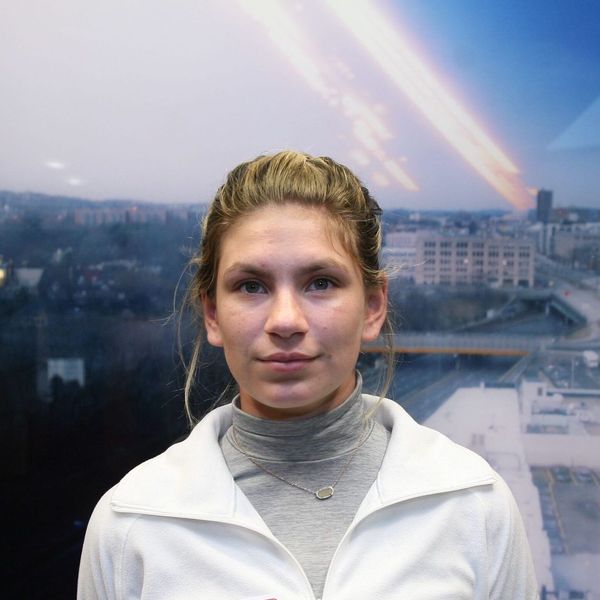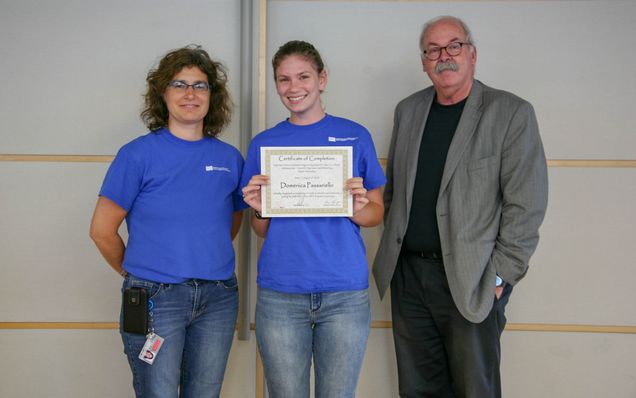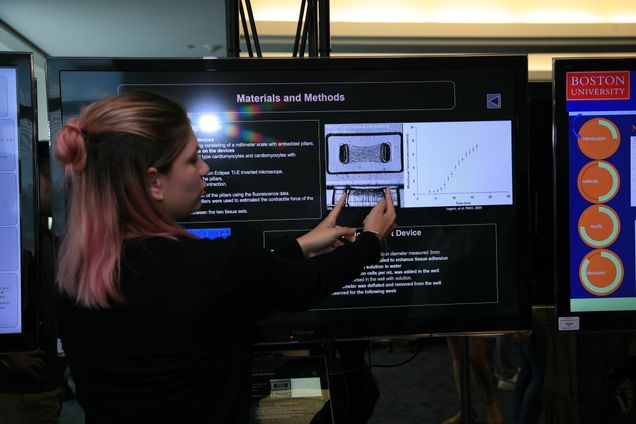She was born and raised in Caracas, Venezuela but moved to Miami, FL. She transitioned her language from Spanish to English since her education was entirely in English.
Initially, Passariello was interested in exploring visual arts, but after a year-long research opportunity in interdisciplinary STEM, she shifted her focus to engineering. Through engineering, she sees ways to help millions of people. “With some intense research and invention, you can create something that helps to the whole world.” Passariello is particularly interested in gene editing and recent studies done with CRISPR.
Summer 2018, Passariello worked with Professor Christopher Chen’s Lab at Boston University, researching cardiomyocytes. More specifically, her project was titled: Exploratory Study of Contractile Force in Cardiomyocytes
Tug Device
Summer 2019, Passariello was a NSF ERC REU participant at the University of Michigan, working with mentor Sam DePalma under Professor Brandon Baker. She worked on electrospining DexMA fibers on the micro tug devices and measuring the tension of the fibers against the pillars. This was done using a micro-manipulator. Passeriello’s team found that the cross linking of the fibers was also cross linking the PDMS that the micro tug devices were made out of. Therefore they tried different concentrations of PDMS and UV time of crosslink to be able to assure that the DexMA fibers were completely crosslinked and that they wouldn’t dissolve in media but that the pillars where not to stiff that the cardiomyocytes would not be able to pull on them.
Since participating in the research experience, Domenica obtained her BS in Biomedical Engineering from Florida International University. She also earned her MS in Innovation from Esade and is currently pursuing a second MS in Deep Brain Technology from the University of Barcelona.


